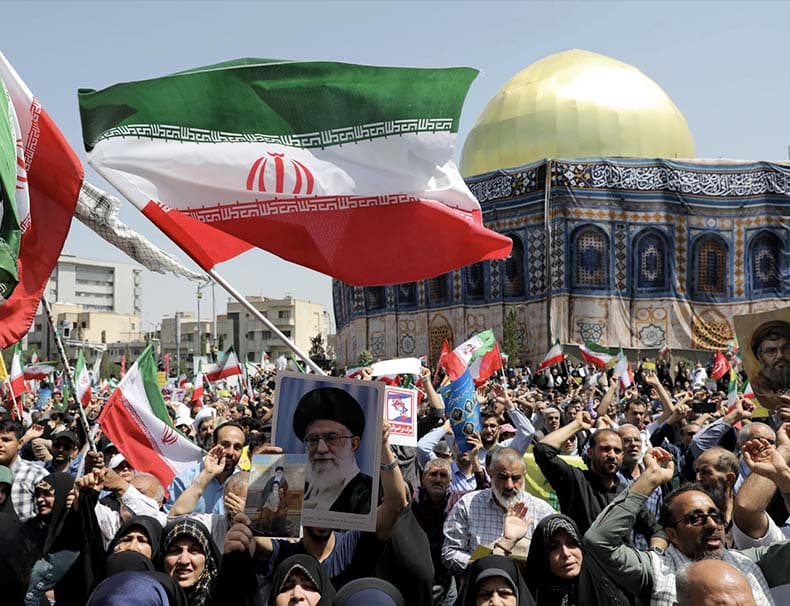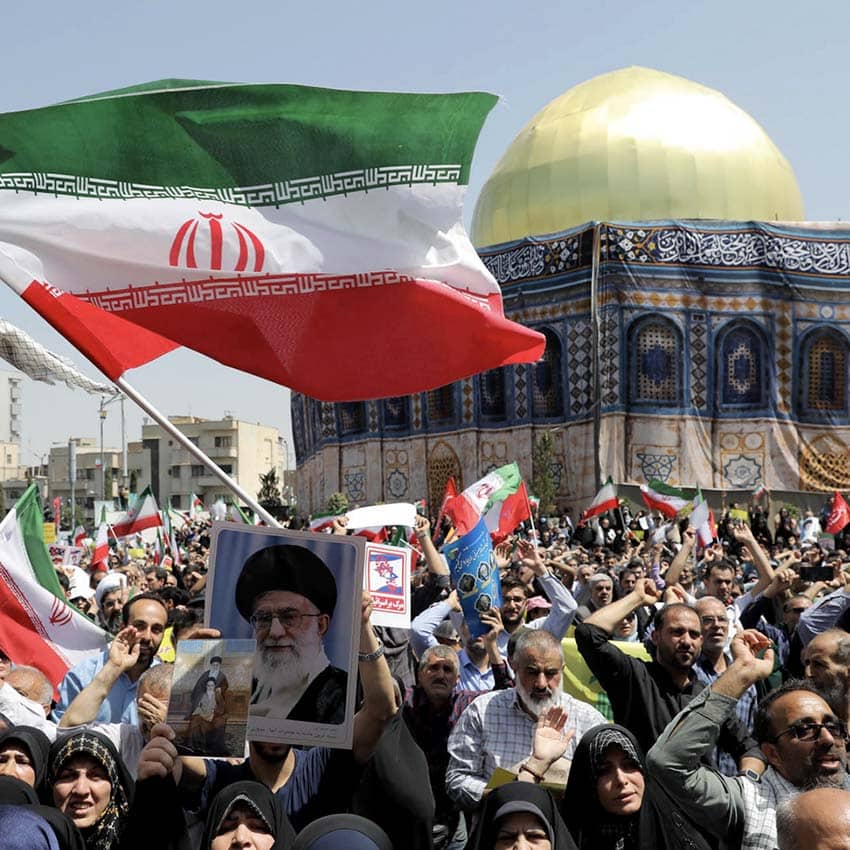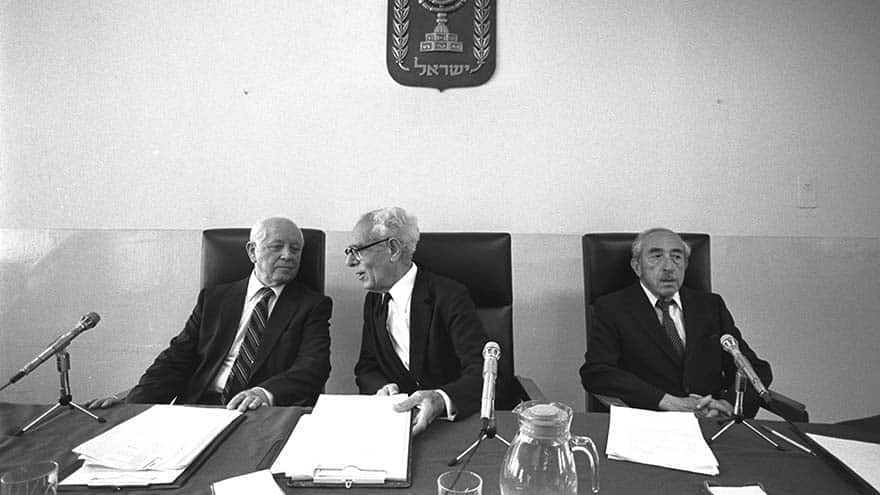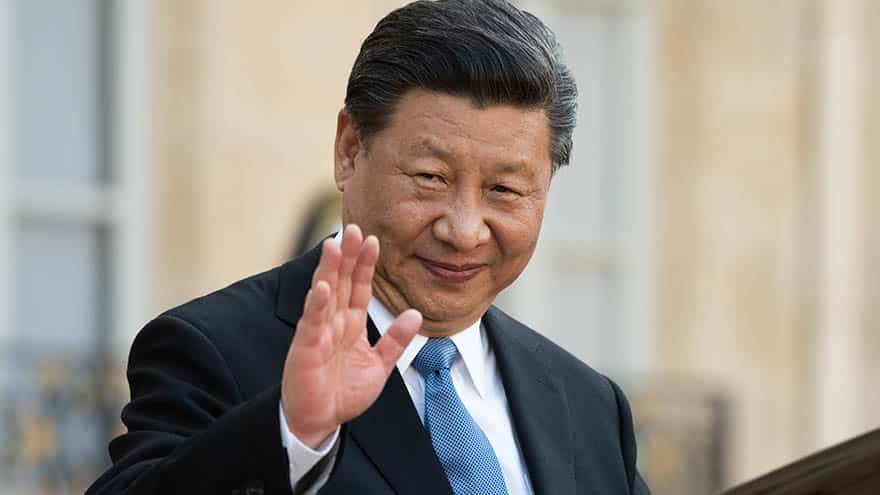The surprise attack on Iran’s nuclear and missile infrastructure, dubbed “Rising Lion”, and the subsequent campaign are a direct continuation of the heavy blow inflicted by Israel on Hamas in the Gaza Strip and on Iran’s other proxies in the region—especially Hezbollah in Lebanon and the Houthis in Yemen—as part of the “Iron Swords” war.
Since the campaign against Iran began, the Palestinian Authority has strictly avoided making any public statement about it, while Hamas has been watching from the sidelines with considerable apprehension and concern. This is in light of the intense and systematic damage that Israel is inflicting on the organization’s principal patron, relying on high-quality, excellent, and precise intelligence, combined with boldness, creativity, sophistication, and impressive operational capability.
Iran, as Hamas’ principal patron, has over the past decades provided generous financial assistance amounting to tens of millions of dollars annually, supplied weapons and combat equipment, and enabled Hamas operatives from Gaza to train on Iranian soil. Iran’s support for Hamas gradually increased over the years. A key turning point in their growing rapprochement occurred after Hamas’ dramatic victory in the Palestinian Legislative Council elections in January 2006, and especially about a year and a half later, in June 2007, when Hamas ousted the Palestinian Authority from Gaza and took control of the area. This takeover, as will be recalled, was carried out with brute force and extreme violence, including, among other things, throwing Palestinian Authority operatives off the rooftops of tall buildings in Gaza to their deaths.
According to information published in the media, Iran’s Islamic Revolutionary Guard Corps cooperated with Hamas in planning the October 7, 2023, terror attack and gave it the green light to proceed. It was also reported that in the weeks leading up to the massacre, about 500 operatives from Hamas and Palestinian Islamic Jihad underwent training in Iran under the guidance of the IRGC’s Quds Force. Alongside Hamas, Palestinian Islamic Jihad is also deeply ideologically aligned with the regime in Tehran and is essentially considered an Iranian puppet. The organization receives generous financial and military aid from Iran and serves as a key tool for operating Palestinian terror infrastructures in the West Bank.
An Opportunity for Public Support for a Deal
Hamas’ immediate position in response to Israel’s surprise attack on Iran was expressed already on the first day. On June 13, Hamas hurried to stand by Iran’s side with an unequivocal statement of support, declaring: “The Zionist aggression against Iran is a dangerous development that illustrates the fateful nature of the struggle with the central enemy of the Islamic nation… It is imperative to adopt a position that will deter the occupation and put an end to its crimes.”
According to Hamas officials, the large-scale attack against Iran reflects the determination of Netanyahu’s “extremist” government to drag the region into open war, serving its “Talmudic vision” and its aspiration for regional hegemony. Hamas asserted that “the Israeli aggression constitutes a blatant violation of international conventions and once again underscores that the Zionist project poses an existential threat to the entire region, not just to Palestine.”
Hamas’ statement emphasized that Iran is today paying the price for its support of Palestine, and this obligates the Islamic nation to stand by its side as one. “The Zionist entity is the central enemy of the nation… The war against it is a fateful campaign that requires unity to curb its crimes and expansionist plans.”
At this stage, it is still unclear how the ongoing war against Iran will affect Hamas’ position regarding progress in negotiations over a new hostage deal. In any case, the accumulated information published in Arab and international media, as well as conversations held by the author of these lines with sources familiar with developments in Gaza and Ramallah, suggests that in the recent talks conducted through mediators—Egypt and Qatar—with active involvement by the American side via special envoy Steve Witkoff, no real progress has been made thus far. According to Palestinian sources, Palestinian-American businessman Bshara Bahbah has been maintaining contacts with senior Hamas officials, so far without results. In light of this, the chances of progress in these negotiations, which are currently proceeding at a slow and discreet pace behind the scenes, do not appear to be high.
Operation “Rising Lion” may, in theory, provide Prime Minister Benjamin Netanyahu with an opportunity to advance efforts to reach a new hostage deal, which would undoubtedly enjoy broad and sweeping public support in Israel. Netanyahu could market such a deal by arguing that Israel holds the upper hand in the confrontation with Iran—the most dangerous enemy—while Hamas has already suffered a harsh and painful blow from the IDF. An argument of this nature would almost certainly resonate with the majority of the Israeli public, which is united in its perception of Iran as an existential threat. In light of that, they would likely support a deal despite the difficult terms and heavy price Israel would have to pay.
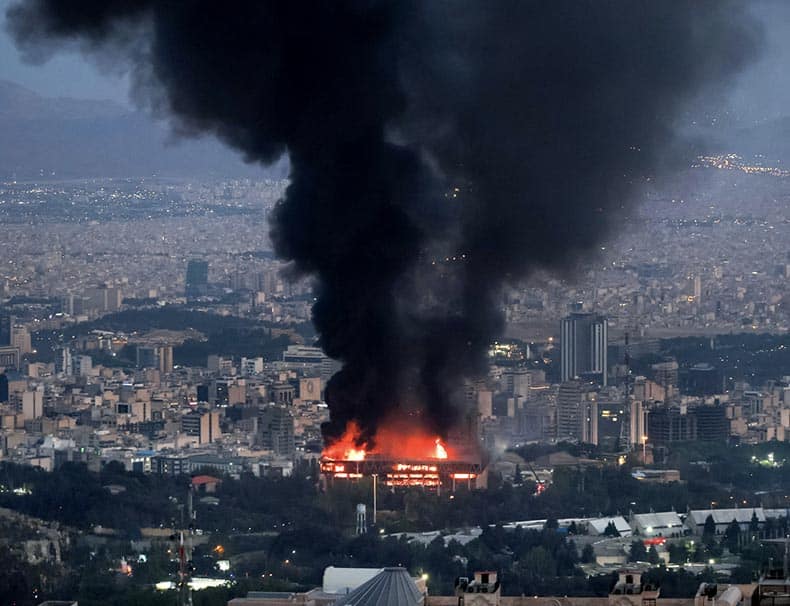
Negotiations Amid the Storm
At present, it appears that the Hamas leadership is in no rush—if anything, it seems reluctant—to make any progress toward implementing a hostage deal as long as the war against Iran continues. The reasoning behind this is simple: Hamas does not want to be perceived as “stabbing Iran in the back” and betraying the one that has stood by its side for decades, providing military, diplomatic, and financial support, especially under the current circumstances in which Iran is under attack by Israel. Consequently, it can be assessed that Hamas is deliberately stalling, as reflected in its failure to transmit its response to the mediators regarding the new proposal for a hostage deal. A similar position was recently expressed by senior Hamas officials abroad, who poured cold water on the possibility of progress in negotiations with Israel. From their perspective, reports in the media suggesting that progress has been made in the talks are perceived as an attempt to impose on Hamas a framework for a deal that does not include a clear Israeli commitment or guarantees to end the war.
The main sticking point in the negotiations centers on Hamas’ demand that Israel provide, in advance, an explicit commitment to end the war and withdraw IDF forces from the Gaza Strip. Israel, for its part, conveyed through the mediators that it is willing to discuss this issue with Hamas during 60 60-day ceasefire. It should be emphasized that this position is entirely unacceptable to Hamas, which views it as unconditional surrender to an Israeli dictate.
According to reports in Israeli media, Prime Minister Netanyahu has held several discussions in recent days aimed at formulating and finalizing Israel’s position in the indirect contacts with Hamas. These reports have suggested that Netanyahu signaled his willingness to send Israel’s negotiating team to Qatar to resume talks and reach an agreed framework for a new deal.
At this stage, the Palestinian Authority’s position regarding the war with Iran is characterized by significant media silence. This is reflected in the conspicuous avoidance by senior PA officials, especially President Mahmoud Abbas, of issuing any public statements about the developments. It seems that Abbas views the war against Iran as a sensitive and problematic issue, and he prefers, at least for now, to refrain from making binding declarations.
It is important to note that, based on the Palestinians’ automatic reflex, one might have expected a public Palestinian alignment against Israel, especially in light of Israel’s daily attacks on a Muslim country. However, the PA’s position largely stems from its hostile and suspicious approach toward Iran, particularly due to Tehran’s financial and military support for Hamas and Palestinian Islamic Jihad operatives in the West Bank, aimed at encouraging terror attacks against Israeli targets.
The PA’s deafening silence is also striking against the backdrop of displays of schadenfreude at the popular level whenever Iranian missiles are launched at Israel. The author has learned that officers from the Civil Administration in the West Bank have been holding contacts with their Palestinian Authority counterparts and their security apparatuses to prevent such demonstrations against Israel. Alongside these efforts, IDF forces and Palestinian security agencies have recently carried out preventive arrests of Hamas members and other operatives to thwart the formation of terror cells in the area.
In conclusion, the war against Iran has placed Hamas in an embarrassing position. It has heightened its fear of severe damage to the main force leading the regional “axis of evil” and its principal patron. In contrast, the Palestinian Authority is shedding no tears over Israel’s successes in the war against Iran. Nevertheless, in my assessment, no significant progress toward a new hostage deal is expected at this stage—and certainly not while the drums of war are still beating. Hamas continues to show resolve in its ultimate demand that Israel agree to a permanent ceasefire and the withdrawal of IDF forces from Gaza, along with receiving concrete international guarantees to ensure these commitments are fulfilled.
Although the negotiations between the parties are proceeding slowly and haltingly, they are expected to continue, as Hamas has a clear interest in eventually reaching a deal with Israel due to the military pressure Israel is exerting on it in Gaza. Even though Iran continues to attack Israel—demonstrated by daily missile and drone launches—it is viewed by the Palestinian Authority as a problematic actor, precisely because of its financial and military support for Palestinian terror organizations operating in the West Bank.
